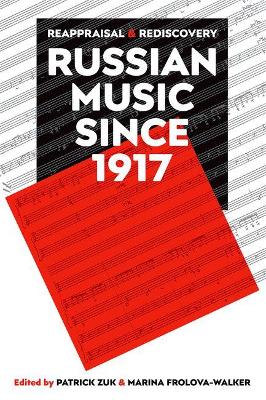Proceedings of the British Academy
1 primary work
Book 209
Russian Music since 1917
Published 28 September 2017
This ground-breaking collection of essays, which arises from a unique collaboration between leading scholars based on either side of the former Iron Curtain, is the first attempt to appraise the current state of research on the development of Russian art music since the 1917 Revolution. Part I provides a comprehensive critical overview of recent research both in Russia itself and outside it, outlining the principal changes in approach and emphasis. The remaining
essays engage with topics of key importance, including: the envisionings of music's place in Soviet and post-Soviet cultural life; the effects of state controls on musical creativity and performance; musical institutions; the Russian musical diaspora; and the transition to the post-Soviet period.
The contributions vividly illustrate the transformation of scholarship in the field since glasnost. In the USSR, scholarship had been seriously hindered by censorship, while in the West, Soviet music and musical life tended to be assessed from entrenched aesthetic and ideological standpoints engendered by the Cold War. The dramatically changed climate of the post-Soviet period has made possible a more objective and informed discussion of many issues, and has led scholars to question
the validity of 'top-down' models of the interaction between musicians and the state that had previously been predominant.
The book will be not only be a valuable resource for university courses on Russian music at undergraduate and postgraduate level, but essential reading for all those interested in Soviet and post-Soviet culture.
essays engage with topics of key importance, including: the envisionings of music's place in Soviet and post-Soviet cultural life; the effects of state controls on musical creativity and performance; musical institutions; the Russian musical diaspora; and the transition to the post-Soviet period.
The contributions vividly illustrate the transformation of scholarship in the field since glasnost. In the USSR, scholarship had been seriously hindered by censorship, while in the West, Soviet music and musical life tended to be assessed from entrenched aesthetic and ideological standpoints engendered by the Cold War. The dramatically changed climate of the post-Soviet period has made possible a more objective and informed discussion of many issues, and has led scholars to question
the validity of 'top-down' models of the interaction between musicians and the state that had previously been predominant.
The book will be not only be a valuable resource for university courses on Russian music at undergraduate and postgraduate level, but essential reading for all those interested in Soviet and post-Soviet culture.
